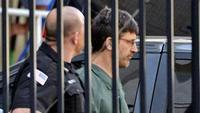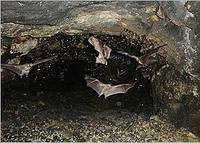-
Michigan terrorism case hinges on informant’s testimony
Mohammad Hassan Hamdan of Dearborn Heights, Michigan was arrested on Sunday, 16 March 2014, at Detroit Metro Airport by FBI agents who claim that Hamdan told an undercover informant of his plans to travel to Lebanon to join Hezbollah as a fighter supporting Syrian president Bashar al-Assad. Hamdan’s family and defense attorney note that the informantis a friend of Hamdan’s ex-girlfriend, and that he is receiving an immigration benefit for his services, two facts that should make the information he provides suspect.
-
-
Johnson makes his presence known at DHS
DHS spent much of 2013 operating with forty-eight vacancies in top management positions, but since Congress approved Jeh Johnson as head of DHS in December 2013, the department has successfully filled seventeen positions.The appointment of former chief technology officer for McAfee, Phyllis Schneck, as deputy undersecretary for cybersecurity,reflects Johnson’s attempt to bridge the gap between DHS and the private sector. Johnson has pushed for other changes in the 22-agency, 240,000-employee organization by introducing some operational philosophies gained from his time as General Counsel for the Defense Department. “Meetings at DHS are already starting about two hours earlier, like they did at DoD,” says one person with multiple contacts at the department.
-
-
Judge rebukes Sheriff Arpaio, his deputy for mocking, defying court orders
Grant Murray Snow, District Judge for the United States District Court for Arizona, earlier this week rebuked Sheriff Joe Arpaio of Maricopa County and chief deputy Jerry Sheridan for defying and mocking Snow’s order, issued last year, to stop targeting Latinos during routine patrols, traffics stops and work raids. “Whether or not the sheriff likes it, there is a distinction in immigration law that was not understood by the population and, with all due respect to you, it is not understood by the sheriff, which is that it is not a criminal violation to be in this country without authorization,” Judge Snow said pointedly.
-
-
Prosecutors ask for confidentiality in NY “Death Ray” case

Glendon Scott Crawford,a former General Electric Co. industrial mechanic, is standing trails in Albany, New York, for developed a radiological dispersal device which he tried to sell to both the KKK and to Jewish organizations so they could use it to kill Muslims. Several experts argued the device would not work since it would require massive amounts of electricity, weigh enough to crush most vehicles and would require victims to remain still in order to face prolonged exposure from close-range radiation.
-
-
Scientists learn how Marburg virus grows in cells

Infections with Marburg virus lead to death in as many as 90 percent of those infected. Once restricted to Africa, cases of the virus have been identified in travelers from Europe and the United States, making effective prevention and treatment a top biodefense priority. Study suggests targeting molecular interaction of virus and host protein may arrest this lethal virus.
-
-
Growing questions about TSA’s behavioral detection program
TSA has spent roughly $1 billion training thousands of “behavior detection officers” as part of theScreening of Passengers by Observation Techniques (SPOT) program. The purpose of SPOT is to identify facial and body expressions that signals terrorist activity. Psychologists – and the GAO – question the effectiveness of the program.“The common-sense notion that liars betray themselves through body language appears to be little more than a cultural fiction,” says one psychologist.
-
-
Delaware launches cyber initiative
Delaware is joining the number of states that have decided to invest in a statewide cybersecurity workforce to combat the growing threat of cyberattacks directed at both private and public institutions.Delaware hopes its cyber initiative will accelerate current efforts to develop a stronger cyber workforce. The Delaware Cyber Initiative proposes $3 million for a collaborative learning and research network in the form of part research lab, part business park, dedicated to cyber innovation.
-
-
Protecting personal data on smartphone
Social networking and the instantaneous sharing of information have revolutionized the way we communicate. Our mobile phones are able to automatically obtain information such as our current location and activities. This information can be easily collected and analyzed to expose our private life. What is even more malicious is that the personal data contained in our smartphones can be disclosed via installed applications without our being informed.
-
-
Quantum cryptography to help us keep our secrets secret

In the history of secret communication, the most brilliant efforts of code-makers have been matched time and again by the ingenuity of code-breakers. Sometimes we can even see it coming. We already know that one of today’s most widely used encryption systems, RSA, will become insecure once a quantum computer is built. An article in Nature reviewing developments in quantum cryptography describes how we can keep our secrets secret even when faced with the double challenge of mistrust and manipulation.
-
-
9/11 terror network in U.S. was never fully dismantled, still a threat
A joint inquiry co-chaired by a former senator has warned that the American network that supported and trained the 9/11 hijackers was never fully dismantled, and that it remains a threat, pending the release of a secret report from the era. Former Senator. Bob Graham (D-Florida) points out that a 28-page section from the “Joint Inquiry into Intelligence Community Activities Before and After the Terrorist Attacks of September 11, 2001” was classified under President George W. Bush and remains so under President Barack Obama.
-
-
FDA proposes rules to prevent terror attack on U.S. food supply
Food terrorism could have drastic economic effects. A DHS risk assessment discovered that should a pathogen like foot-and-mouth disease be introduced to Great Plains ranchers, total damages would exceed $50 billion, affecting U.S. beef exports and dramatically reducing consumer demand for beef products.In order to prevent or reduce the risk from a potential terror attack on the nation’s food supply, the FDA proposed new rules to the Food Safety Modernization Act (FSMA).
-
-
New tool makes scanning the Internet for illegal images possible
Researchers have developed a system that makes it possible to scan traffic on the Internet for illegal photographs. The system can, for example, help trace child pornography on the Internet without infringing on the privacy of Internet users. Internet service providers could use the tool to keep their network “clean.”
-
-
Debate intensifies over Obama deportation instruction to ICE
President Barack Obama’s recent instruction to DHS to find “more humane” ways to deport illegal immigrants has sparked yet another debate between immigration supporters and critics as to what exactly Obama’s directive meant. Supporters of undocumented immigrants hope DHS will cease all deportations deemed unnecessary, while opponents of Obama’s immigration policies urge DHS to carry out the country’s immigration laws as written by Congress.
-
-
Turkey shoots down Syrian military jet

Turkish fighter jets on Sunday shot down a Syrian warplane after it violated Turkey’s airspace. The Syrian military confirmed the incident, saying the plane was downed in Syrian airspace while strafing rebel positions. Syrian state TV described the incident as a “blatant aggression,” and said the pilot safely ejected from the aircraft. In 2012 Turkey changed its rules of engagement after Syria shot down a Turkish military plane, saying that any Syrian military plane approaching the Turkish border would be treated as a legitimate target.
-
-
Belfast court denies bail for former IRA commander accused of 1972 killing
Ivor Bell, 77, a former Irish Republican Army (IRA) commander accused of abducting and killing Jean McConville, 37, a mother of ten, in 1972, on Saturday was denied bail in a Belfast court. Prosecutors said the break in the case came as a result of information found in the recordings of Boston College’s oral history project which interviewed Northern Ireland paramilitary fighters involved in the long sectarian conflict there. The interviews were taped on the understanding that they would not be made public during the lifetimes of the subjects, but last year a U.S. court granted police in Northern Ireland access to the recordings.
-
More headlines
The long view
What Does Netflix’s Drama “Adolescence” Tell Us About Incels and the Manosphere?
While Netflix’s psychological crime drama ‘Adolescence’ is a work of fiction, its themes offer insight into the very real and troubling rise of the incel and manosphere culture online.
A Shining Star in a Contentious Legacy: Could Marty Makary Be the Saving Grace of a Divisive Presidency?
While much of the Trump administration has sparked controversy, the FDA’s consumer-first reforms may be remembered as its brightest legacy. From AI-driven drug reviews to bans on artificial dyes, the FDA’s agenda resonates with the public in ways few Trump-era policies have.
The Center Can Hold — States’ Rights and Local Privilege in a Climate of Federal Overreach
As American institutions weather the storms of executive disruption, legal ambiguity, and polarized governance, we must reexamine what it means for “the center” to hold.
How to Reverse Nation’s Declining Birth Rate
Health experts urge policies that buoy families: lower living costs, affordable childcare, help for older parents who want more kids
Foundation for U.S. Breakthroughs Feels Shakier to Researchers
With each dollar of its grants, the National Institutes of Health —the world’s largest funder of biomedical research —generates, on average, $2.56 worth of economic activity across all 50 states. NIH grants also support more than 400,000 U.S. jobs, and have been a central force in establishing the country’s dominance in medical research. Waves of funding cuts and grant terminations under the second Trump administration are a threat to the U.S. status as driver of scientific progress, and to the nation’s economy.
The True Cost of Abandoning Science
“We now face a choice: to remain at the vanguard of scientific inquiry through sound investment, or to cede our leadership and watch others answer the big questions that have confounded humanity for millennia —and reap the rewards.”
